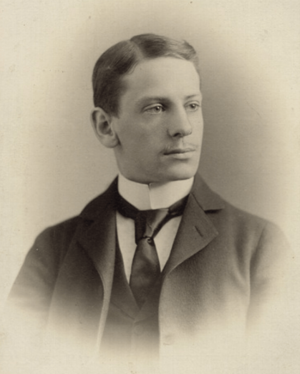Robert Taschereau facts for kids
Quick facts for kids
Robert Taschereau
|
|
|---|---|

Robert Taschereau, c.1915
|
|
| 11th Chief Justice of Canada | |
| In office April 22, 1963 – September 1, 1967 |
|
| Nominated by | John Diefenbaker |
| Appointed by | Georges Vanier |
| Preceded by | Patrick Kerwin |
| Succeeded by | John Robert Cartwright |
| Puisne Justice of the Supreme Court of Canada | |
| In office February 9, 1940 – April 22, 1963 |
|
| Nominated by | William Lyon Mackenzie King |
| Preceded by | Lawrence Cannon |
| Succeeded by | Wishart Spence |
| Member of the Legislative Assembly of Quebec for Bellechasse | |
| In office 1930–1936 |
|
| Preceded by | Antonin Galipeault |
| Succeeded by | Émile Boiteau |
| Personal details | |
| Born | September 10, 1896 Quebec City, Quebec |
| Died | July 26, 1970 (aged 73) Montreal, Quebec |
| Political party | Liberal |
| Spouse |
Ellen Donohue
(m. 1926) |
| Alma mater | Université Laval |
Robert Taschereau was an important Canadian lawyer and judge. He was born on September 10, 1896, and passed away on July 26, 1970. He became the 11th Chief Justice of Canada. This means he was the main judge of the country's highest court. He also briefly acted as the leader of Canada when the Governor General of Canada, Georges Vanier, died in 1967.
Contents
Early Life and Family
Robert Taschereau was born in Quebec City in 1896. His parents were Louis-Alexandre Taschereau and Adine Dionne. He came from a family with a strong history in law and politics. His father later became the Premier of Quebec, which is like the head of the provincial government. His grandfather, Jean-Thomas Taschereau, was also a judge on the Supreme Court of Canada.
Robert Taschereau studied at Laval University. He earned a Bachelor of Arts degree in 1916. He then completed his law degree in 1920.
Political Career
After working as a lawyer, Taschereau decided to enter politics. He joined the Liberal Party. In 1930, he was elected to the Quebec National Assembly. This is the main law-making body for the province of Quebec. He represented the area called Bellechasse. He served in this role until 1936, when he decided to leave politics.
Serving on the Supreme Court
On February 9, 1940, Robert Taschereau was appointed to the Supreme Court of Canada. This is the highest court in Canada. He took the place of his former law partner, Lawrence Cannon, who had passed away.
In 1946, Justice Taschereau worked on a special investigation. He and another judge, Roy Kellock, led a Royal Commission. This commission looked into spying activities in Canada. This investigation happened because of something called the Gouzenko Affair.
Robert Taschereau was promoted to Chief Justice in 1963. This made him the most senior judge in Canada.
Acting as Administrator of Canada
The Chief Justice of Canada has a very important role. If the Governor General of Canada is not able to do their job, the Chief Justice steps in. This can happen if the Governor General is away, sick, or passes away. In this situation, the Chief Justice becomes the Administrator of the Government of Canada. They act as the country's leader until a new Governor General is appointed.
This happened in 1967 when Governor General Georges Vanier died. Robert Taschereau served as the Administrator from March 5, 1967, until April 17, 1967. Then, the Queen appointed Roland Michener as the new Governor General.
Later Life and Recognition
Robert Taschereau stayed on the Supreme Court until he retired in 1967.
In 1967, he received a high honor. He was made a Companion of the Order of Canada. This award recognizes people who have made great contributions to Canada.
Robert Taschereau passed away in 1970 when he was 73 years old. He was buried in the family plot at the Cimetière Notre-Dame-de-Belmont in Sainte-Foy, Quebec.
Images for kids
 | Calvin Brent |
 | Walter T. Bailey |
 | Martha Cassell Thompson |
 | Alberta Jeannette Cassell |


